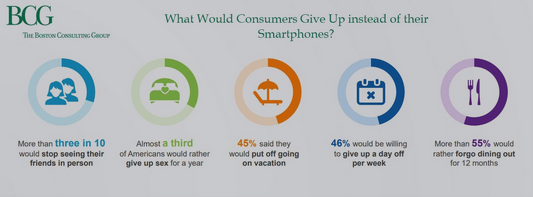Mobile marketing continues to evolve with advancements in technology and changing consumer behaviors. Several trends are shaping the future of mobile marketing:

5G Technology:
The widespread rollout of 5G technology enhances mobile internet speeds, enabling quicker and more seamless experiences. This allows for more sophisticated mobile applications, augmented reality (AR), virtual reality (VR), and real-time interactions.
Mobile Commerce (mCommerce):
The growth of mobile commerce is undeniable, with an increasing number of consumers making purchases through mobile devices. Optimizing websites and apps for mobile transactions and incorporating mobile payment options will be crucial for businesses.
Augmented Reality (AR) and Virtual Reality (VR):
AR and VR technologies are becoming more prevalent in mobile marketing. Brands are leveraging AR for interactive and immersive experiences, while VR is being used for virtual product demonstrations and enhanced storytelling.
Artificial Intelligence (AI) and Chatbots:
AI-driven technologies, including chatbots and virtual assistants, are transforming customer interactions on mobile devices. These technologies provide personalized recommendations, answer queries, and enhance customer engagement in real-time.
Personalization and Hyper-Targeting:
Mobile marketing is increasingly focused on delivering personalized content and offers based on user behavior, preferences, and location. Hyper-targeting helps businesses provide relevant messages to specific audiences, improving the overall user experience.
Voice Search Optimization:
The rise of voice-activated devices and virtual assistants has led to an increase in voice searches. Optimizing content for voice search and incorporating conversational keywords is essential for maintaining visibility in mobile search results.
Progressive Web Apps (PWAs):
PWAs offer an app-like experience within a mobile browser, combining the best features of websites and native apps. They provide faster loading times, offline capabilities, and improved user engagement, contributing to a seamless mobile experience.
Video Content Dominance:
Video continues to be a dominant form of content consumption on mobile devices. Short-form videos, live streaming, and interactive video content are gaining popularity, offering brands opportunities to engage audiences in creative ways.
In-App Advertising and Monetization:
In-app advertising remains a key component of mobile marketing. Businesses are exploring innovative ways to monetize their apps, such as offering freemium models, in-app purchases, and subscription-based services.
Mobile Gaming Marketing:
Mobile gaming is a massive industry, and marketers are increasingly leveraging it for advertising opportunities. In-game ads, sponsored content, and collaborations within mobile games provide brands with unique ways to reach a large and engaged audience.
Sustainability and Social Responsibility:
Consumers are increasingly conscious of environmental and social issues. Mobile marketers are incorporating sustainability and social responsibility themes in their campaigns, resonating with the values of socially conscious consumers.
Rise of QR Codes:
The pandemic has led to a resurgence in the use of QR codes for contactless interactions. Marketers are incorporating QR codes into mobile campaigns for product information, promotions, and seamless experiences.
Keeping abreast of these trends and adapting mobile marketing strategies accordingly is crucial for businesses to stay competitive and connect with their target audience effectively in the evolving landscape of mobile technology.
